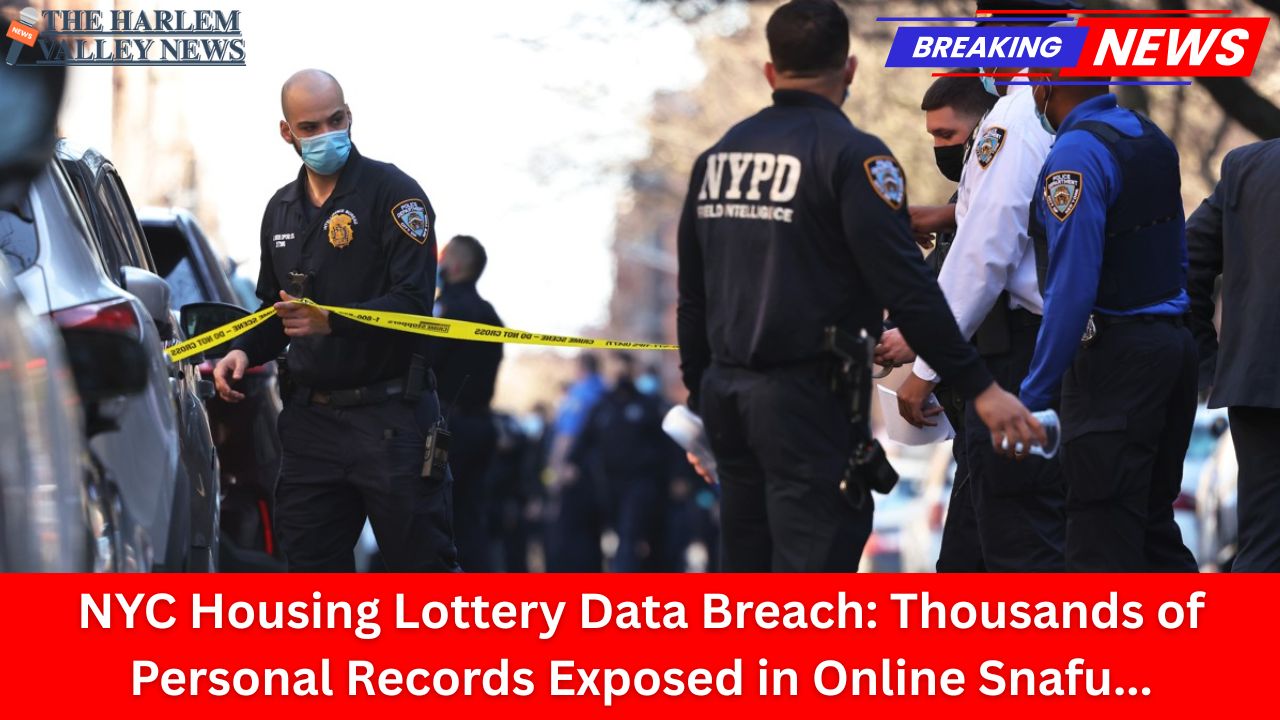New York, US: In a stunning revelation that has rattled residents and privacy advocates alike, a massive breach has exposed sensitive personal information of thousands of New York City residents who applied for affordable housing through the city’s Housing Lottery program. Applicants’ data—including names, addresses, salaries, and in some cases, Social Security numbers—was left publicly accessible online for years before the exposure came to light.
Discovery of the Data Exposure
The alarming leak was first uncovered during a CBS News New York investigation. Concerned applicants contacted reporters after discovering that simple internet searches brought up their completed housing applications, brimming with personal details meant only for official review. Information such as income, addresses, phone numbers, and even family details could be found, raising immediate concerns over potential identity theft and targeted scams.
For many, the discovery was deeply unsettling. “Imagine someone types your name into a search engine, and one of the top results is your apartment application—including the private details you sent the landlord,” one applicant lamented. Several victims reported a surge in scam phone calls around the time the breach was discovered, linking the exposure to real-world attempts at fraud and harassment.
How Did This Happen?
At the heart of the breach was an internal web platform managed by Reside New York, a company authorized by the city to review tenant applications for private developments participating in the Housing Lottery system. The platform, intended as a behind-the-scenes tool for sorting applications, was inadvertently indexed by search engines such as Bing, Yahoo, and DuckDuckGo, making hundreds of thousands of applications publicly accessible to anyone with the right search terms.
Technology experts warn that such publicly viewable data serves as a “goldmine for fraudsters.” While the information was promptly removed from public view following media inquiries, cybersecurity specialists caution that malicious actors may have already copied the data. “If I’m an attacker, I can call you up pretending to be from the housing office, and pressure you for deposits—armed with intimate knowledge of your situation,” said one security professor consulted in the wake of the breach.
The City’s Response
The New York City Department of Housing Preservation and Development (HPD), which oversees the Housing Connect platform, described the incident as “an unacceptable violation of the standards for data privacy.” Officials were quick to stress that HPD was not directly responsible for the breach, clarifying that the compromised portal was managed independently by Reside New York. Nonetheless, HPD has initiated a thorough review and promised policy changes to prevent similar occurrences in the future.
For affected applicants, the city has announced corrective actions. Reside New York has agreed to pay for credit monitoring services, providing a crucial layer of protection as the full scale of the exposure is investigated. The city and partner organizations are currently conducting a detailed assessment to identify all impacted individuals and review the integrity of data storage practices.
Widespread Impact and Community Reaction
Affordable housing in New York City is notoriously scarce, and the Housing Lottery serves as a lifeline for thousands of families each year. The breach has left many feeling doubly victimized—first by the struggle to secure reasonably priced housing, and now by the loss of their privacy.
Several applicants voiced their frustration and called for greater accountability. “They should really, at the very least, show that they’re changing things moving forward,” one affected individual stated. Others expressed disappointment that an already stressful and competitive process has led to this violation of trust.
Lessons and Next Steps
While the city has moved to contain the breach and assure the public that robust safeguards are being instituted, experts caution that digital privacy risks remain high—especially for vulnerable populations seeking government assistance.
Applicants are urged to closely monitor their financial accounts and report any suspicious activity. The breach serves as a sobering reminder for all organizations handling sensitive data: proactive safeguards and regular audits are essential in an age where even a single misconfiguration can upend thousands of lives.
As investigations continue, impacted New Yorkers await further updates—and hope that the city’s corrective actions will ensure this unwelcome episode is never repeated.
















Leave a Reply